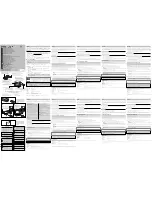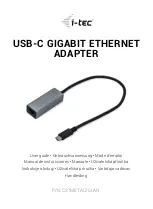
Configuration Option Tables
A-5
7110-A2-GB20-00
June 1997
Table A-2.
Network Interface Options (2 of 3)
Bit Stuffing
Possible Settings: 62411, Part68, Disable
Default Setting: 62411
Specifies when bit stuffing is performed to meet the ones density requirements for data
transmission on the network. You must choose the maximum number of consecutive
zeros the DSU/CSU can receive before it inserts a one.
62411 – Specifies that a one is inserted in the data stream after 15 consecutive zeros or
when the density of ones falls below 12.5% (complies with AT&T TR 62411).
Part68 – Specifies that a one is inserted in the data stream after 80 consecutive zeros
(complies with FCC Part 68).
Disable – Disables bit stuffing so that ones density is not enforced.
NOTES: – To comply with Canadian DOC CS-03 regulations, equipment installed
in Canada must be configured to select 62411.
– To comply with USA Part 68 regulations, equipment installed in the USA
must be configured to select Part 68.
– This configuration option is only available if the network interface line
coding format is set to AMI.
Line Build Out (LBO)
Possible Settings: 0.0, –7.5, –15, –22.5
Default Setting: 0.0
Specifies the line build out (LBO) for the signal transmitted to the network.
FDL Management Link
Possible Settings: Enable, Disable
Default Setting: Disable
Specifies whether Facility Data Link (FDL) is enabled. Selecting Enable allows SNMP or
Telnet traffic to flow over the 4 kbps data link provided by FDL. Running SNMP or Telnet
over FDL requires an end-to-end FDL connection and cannot be terminated within the
network.
Enable – Enables the FDL management link for SNMP or Telnet.
Disable – Disables the FDL management link.
NOTES: – This configuration option is only available if the framing format is set to
ESF.
– If the local DSU/CSU’s FDL is enabled, the remote DSU/CSU’s FDL
must also be enabled.
















































